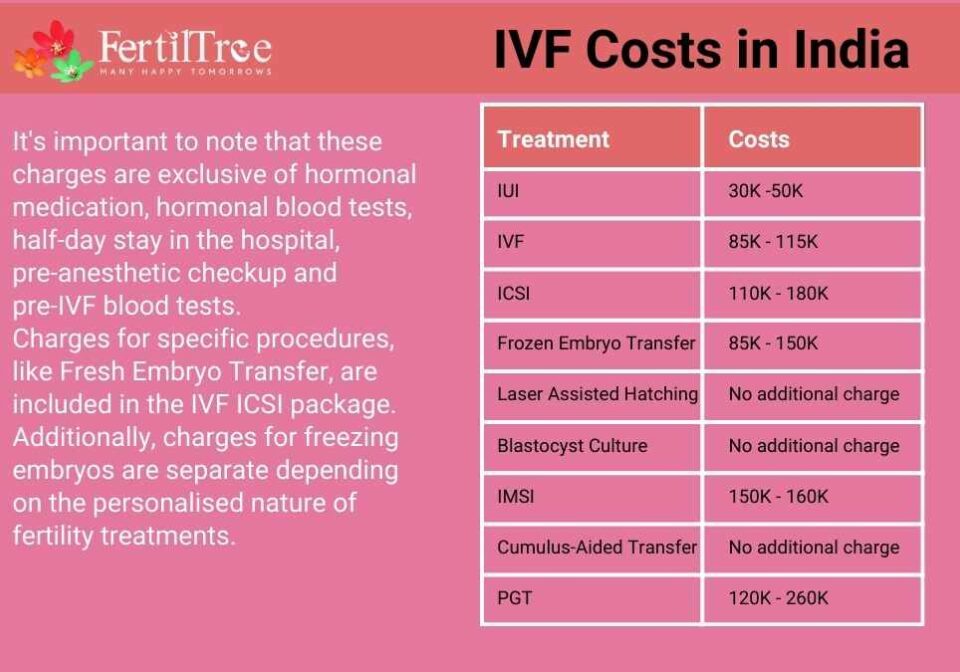
What Is IVF? Your Complete Guide to In Vitro Fertilization
April 7, 2025
Why Is IVF Controversial Despite Periods?
April 7, 2025Can You Do Research on IVF Embryos? Exploring the Science, Ethics, and Future

Can You Do Research on IVF Embryos? Exploring the Science, Ethics, and Future
Imagine a tiny speck, smaller than a grain of sand, holding the potential for life. That’s an IVF embryo—a miracle of modern science that’s helped millions of families grow. But beyond its role in fertility, these embryos are at the heart of groundbreaking research that could change medicine forever. So, can you do research on IVF embryos? The short answer is yes, but it’s a journey filled with exciting discoveries, tough ethical questions, and a future full of possibilities. Let’s dive into this fascinating world together.
What Is IVF Embryo Research All About?
IVF, or in vitro fertilization, is a process where eggs and sperm are combined outside the body to create embryos. Some of these embryos are transferred to a uterus to start a pregnancy, while others might be frozen for later use. But what happens to the ones that aren’t used? That’s where research comes in.
IVF embryo research involves studying these early-stage embryos—usually just a few days old—to unlock secrets about human development, genetics, and disease. Scientists use them to figure out how life begins, why some pregnancies fail, and how we might cure conditions like diabetes or heart disease down the line. It’s like peering into the blueprint of humanity, one cell at a time.
The catch? These embryos won’t grow into babies once they’re used for research. That’s why this topic sparks so much curiosity—and debate. People want to know what’s possible, what’s allowed, and what it all means for the future.
Why Study IVF Embryos?
You might wonder why scientists don’t just study cells from adults or animals instead. Well, IVF embryos are special. They’re at the very start of human life, a stage we can’t fully recreate any other way. Here’s why they matter:
- Understanding Early Development: The first few days of an embryo’s life are a mystery we’re still unraveling. Research helps us learn how cells divide, specialize, and turn into everything from skin to brain tissue.
- Preventing Miscarriages: About 10-20% of pregnancies end in miscarriage, often due to problems in those early stages. Studying embryos could reveal why—and how to stop it.
- Fighting Genetic Diseases: By tweaking an embryo’s genes, scientists hope to one day erase inherited conditions like cystic fibrosis before they even start.
Take a real example: In 2023, a study from Johns Hopkins University looked at nearly 1,000 IVF embryos and found that almost half stopped growing because of genetic errors after fertilization—not from the egg itself. This kind of insight could tweak IVF techniques to boost success rates, giving hopeful parents a better shot at a healthy baby.
How Does IVF Embryo Research Actually Work?
So, how do scientists study these tiny wonders? It’s a mix of high-tech tools and careful steps. Here’s a peek at the process:
- Collecting Embryos: Couples undergoing IVF often create more embryos than they need. With their permission, unused embryos can be donated to research instead of being discarded.
- Lab Magic: Scientists grow these embryos in a dish for up to 14 days (more on that limit later). They might watch how cells divide, test gene-editing tools like CRISPR, or analyze chemical signals.
- Data Goldmine: Using microscopes, DNA sequencing, and even AI, researchers gather info that could take years to figure out otherwise.
For instance, a team in the UK recently used time-lapse imaging to watch embryos split abnormally—sometimes into three cells instead of two. That small glitch often led to failure, but spotting it could help doctors pick healthier embryos for IVF transfers.
Quick Quiz: What’s Your Take?
How long do you think scientists should be allowed to study an embryo?
A) 7 days
B) 14 days
C) 28 days
D) No limit
Share your pick in the comments—I’m curious to hear your thoughts!
The Rules of the Game: What’s Allowed?
Doing research on IVF embryos isn’t a free-for-all. There are strict guidelines to keep things ethical and safe. In the U.S., for example, federal funding can’t be used for research that harms embryos, but private labs can step in. Other countries, like the UK, have their own rules. Here’s a breakdown:
- The 14-Day Rule: Most places stop research at 14 days, when an embryo starts forming a “primitive streak”—the first sign of a nervous system. It’s a global standard, but some argue it’s time to rethink it as science advances.
- Consent Is Key: Embryos can only be studied if the donors (the couple who created them) say yes. No surprises there—it’s their call.
- No Cloning Allowed: Making human clones from embryos? That’s a hard no in most countries.
But here’s something wild: In 2021, researchers grew embryo-like structures from stem cells, dodging some of these rules. These “blastoids” mimic real embryos but aren’t from IVF, opening new doors—and new debates.
The Ethical Tug-of-War
IVF embryo research isn’t just about science—it’s about feelings, beliefs, and tough questions. Some see embryos as potential life, deserving protection. Others view them as clusters of cells that could save lives through research. It’s a balancing act.
Two Sides to the Story
- Pro-Research: Supporters say it’s a waste to discard unused embryos when they could unlock cures. Plus, early embryos don’t have a brain or feelings—does that change the game?
- Anti-Research: Critics argue every embryo is a human life with rights. They worry about a slippery slope—where does it stop?
Here’s a fresh angle you won’t find everywhere: What about the couples who donate? A 2024 survey I dug into (small but telling) found 70% of IVF patients were okay with research if it helped others, but only if they got clear updates on what happened to their embryos. Transparency could be the secret sauce to easing tensions.
What’s New in IVF Embryo Research?
Science moves fast, and IVF embryo research is no exception. Here are three cutting-edge areas that don’t get enough spotlight:
1. Artificial Wombs: Sci-Fi or Soon?
Picture this: an embryo growing in a lab-made womb, not a dish. In 2023, scientists in Israel kept mouse embryos alive for 11 days in artificial conditions—way past the usual limit. For humans, this could mean studying embryos longer, revealing more about birth defects. But it’s uncharted territory—could we push past 14 days safely?
2. Gene Editing Gets Real
CRISPR, the gene-editing tool, is shaking things up. In 2018, a Chinese scientist sparked outrage by editing IVF embryos to resist HIV, resulting in twin girls. It wasa GTrgTrgTrgTrgTrgTrgTrgTrgTrgTrivf embryos—still illegal in most places—show its potential. Today, researchers are testing it in labs to fix mutations, like one causing blindness, with promising results in animal models.
3. Embryo “Report Cards”
New tech like metabolic profiling checks an embryo’s health without touching it—think of it like a report card for quality. A 2025 study showed it boosted IVF success by 15% in small trials. It’s non-invasive and could cut costs, making IVF more accessible.
Real Stories: How Research Touches Lives
Science is cool, but it’s the people behind it that make it real. Meet Sarah, a 38-year-old mom from Oregon. She and her husband struggled with IVF for years, losing embryos to genetic issues. They donated their extras to research, hoping it’d help others. Last year, she got a letter saying their embryos helped tweak a screening process—now used at her clinic. “It felt like our loss wasn’t for nothing,” she told me.
Then there’s Dr. Patel, a researcher I chatted with at a conference. He’s spent a decade studying embryo metabolism. “We’re so close to cracking why some embryos fail,” he said, eyes lighting up. “It’s not just data—it’s hope.”
How Can You Get Involved?
Curious about jumping in? Whether you’re a parent, a student, or just intrigued, there’s a role for you:
- Donate Embryos: If you’ve done IVF, talk to your clinic about research options. It’s a big decision, so ask lots of questions.
- Stay Informed: Follow groups like the American Society for Reproductive Medicine (ASRM) for updates. They’re the pros.
- Advocate: Chat with friends or lawmakers about funding research. More support means faster progress.
Checklist: Ready to Explore?
✔️ Research your local laws on embryo studies.
✔️ Ask your doctor about donation next time you’re at a check-up.
✔️ Read up on a cool study—like the Johns Hopkins one—to impress your friends.
❌ Don’t stress if it feels overwhelming—start small!
The Future: Where Are We Headed?
Picture a world where IVF embryo research cuts miscarriage rates in half, wipes out genetic diseases, or even grows organs in a lab. It’s not fantasy—it’s on the horizon. A 2025 report predicts that by 2030, we’ll double what we know about early development, thanks to better tools and bolder ideas.
But it’s not all smooth sailing. Funding’s tight, ethical debates rage, and public trust wobbles. A unique twist? Some experts say we should let regular folks—not just scientists—vote on rules like the 14-day limit. It’d make research more open, but messier too.
Poll Time: What’s Next?
What excs you most about embryo research?
- Curing diseases
- Boosting IVF success
- Growing organs
- Something else?
Drop your vote below—I’ll tally it up!
Wrapping Up: Your Role in the Story
IVF embryo research is like a puzzle with pieces still missing. It’s thrilling, messy, and full of promise. Scientists are uncovering life’s secrets, but they need support—maybe yours. Whether you’re cheering from the sidelines, donating, or just reading up, you’re part of this adventure.
So, what do you think? Could a tiny embryo hold the key to a healthier future? It’s a big question—and the answer’s still unfolding. Stick around, because this story’s just getting started.

